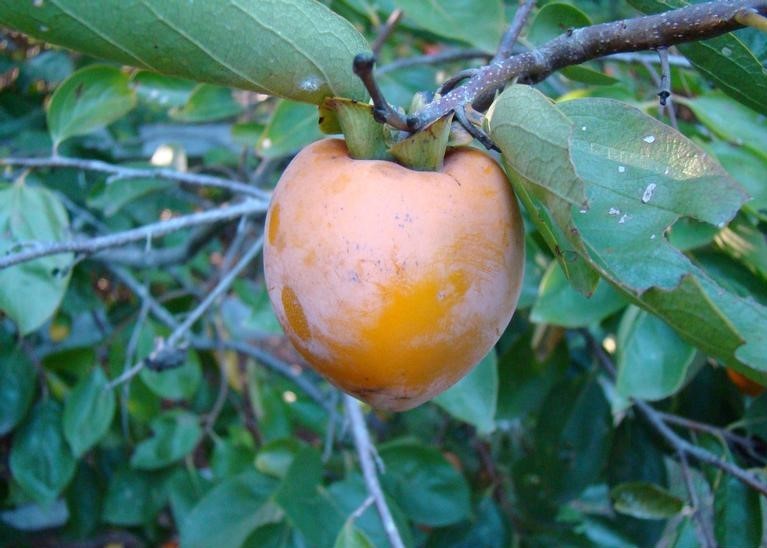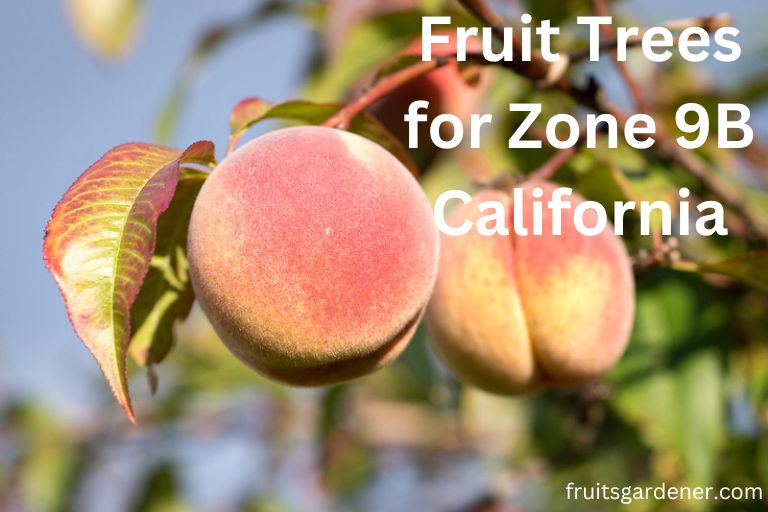This content is for informational purposes only and does not constitute financial, legal, or professional advice. Always consult a certified professional before making financial or investment decisions. As an affiliate, we may earn a commission from qualifying purchases made through links in this post at no extra cost to you.
Are you looking for an easy-to-grow fruit tree that will produce delicious fruits? If so, then you should consider planting a self-pollinating fruit tree in your garden. Self-pollinating fruit trees zone 8 are ideal for small gardens or those with limited space.
They are also perfect for beginners who want to try their hand at growing fruit trees. There are a number of self-pollinating fruit trees that are suitable for growing in zone 8. These include apples, pears, plums, cherries, and apricots. All of these trees are relatively easy to grow and will provide you with an abundant crop of fresh fruits each year.
If you’re looking for a fruit tree that will thrive in zone 8, self-pollinating varieties are a great option. These trees don’t require cross-pollination from another tree in order to produce fruit, so they’re perfect for small gardens or yards. Plus, they’re generally easier to care for than other types of fruit trees.
Some self-pollinating fruit trees that do well in zone 8 include apples, pears, plums, and cherries. If you have the space, you could even plant multiple varieties of these trees to create your own mini orchard! Just be sure to give each tree enough room to grow, as overcrowding can lead to problems with pests and diseases.
With proper care, self-pollinating fruit trees can provide you with years of fresh fruits. So if you’re looking for an easy-to-care-for tree that will produce delicious fruits, consider planting one (or more) of these varieties in your yard.
Which Fruit Trees Can Self Pollinate?
Not all fruit trees can self pollinate, but there are many that can. This includes some common varieties like apples, pears, plums, and cherries. Self-pollination occurs when the pollen from the male organ or stamen of a flower reaches the female organ or pistil of the same flower.
This can happen through wind or insects transferring the pollen. Some flowers have both male and female organs, so they can pollinate themselves. Other times, only one sex is present on a tree, so cross-pollination with another tree is necessary for fertilization to occur.
Can I Grow a Cherry Tree in Zone 8?
Yes, you can grow a cherry tree in Zone 8. The best time to plant your cherry tree is in the fall, so it has time to establish itself before the hot summer months. You’ll want to choose a spot that gets full sun and has well-drained soil.
Cherry trees are relatively low-maintenance, but you’ll need to water them regularly during the first few years after planting. Be sure to fertilize your tree each spring, using a fertilizer made specifically for fruit trees. With proper care, your cherry tree should produce an abundance of sweet cherries for you to enjoy.
Also, you can read what fruit trees grow well in zone 8a. You will learn a lot of things from here.
What Fruit Trees Do Not Need a Pollinator?
Not all fruit trees need a pollinator in order to produce fruit. Some varieties of fruit trees are self-pollinating, meaning they can pollinate themselves without the help of another tree. Other varieties require cross-pollination, which means they need to be pollinated by a different tree in order for the flowers to be fertilized and produce fruit.
There are several factors that determine whether or not a fruit tree needs a pollinator. One is the type of flower the tree produces. Self-pollinating trees have flowers that contain both male and female reproductive parts, so they can fertilize themselves.
Cross-pollinating trees have separate male and female flowers, so they need another tree to provide the pollen for fertilization. Another factor that determines whether or not a fruit tree needs a pollinator is the time of year when the flowers bloom. Some self-pollinating trees have flowers that bloom at different times on different parts of the same tree.
This ensures that there will be pollen available for self-fertilization even if the weather isn’t ideal for bees or other insects to be out and about. Cross-pollinating trees typically have synchronized blooms, meaning all of their flowers open at the same time. This ensures that there will be plenty of other potential pollinators around when their own flowers are ready to receive pollen.
So, what types of fruit trees don’t need a pollinator? Almost all citrus fruits including oranges, lemons, limes, and grapefruits are self-pollinating because their flowers contain both male and female reproductive parts. Many stone fruits such as cherries, plums, apricots, and nectarines are also self-pollinating because they often have synchronized blooms within each individual tree.
Apple trees typically require cross-pollination from another apple variety in order to produce fruit, but there are some newer varieties that are able to self-pollinate such as ‘Honeycrisp’. Pear trees also usually require cross-pollination from another pear variety; however, there is one variety called ‘Bartlett’ which is partially self-fertile and doesn’t always need another peartree nearby in order to bear fruit.

What Fruit Grows Best in Zone 8A?
The best fruit to grow in zone 8a is citrus. This includes oranges, lemons, limes, and grapefruits. All of these fruits thrive in the warm climate of zone 8a.
Citrus trees need full sun and well-drained soil to produce juicy, flavorful fruit. If you live in zone 8a and are looking for a fruiting tree to add to your landscape, consider planting a citrus tree!
Zone 8 Dwarf Fruit Trees
When it comes to dwarf fruit trees, zone 8 is the perfect place to grow them. The climate is just right for these types of trees, and they will thrive in this area. There are a few things to keep in mind when growing dwarf fruit trees in zone 8, however.
First, you will need to choose the right type of tree for your needs. There are many different kinds of dwarf fruit trees, so make sure to do your research before making a purchase. You’ll also want to consider the size of the tree and how much fruit it produces.
Once you’ve chosen the perfect tree, it’s time to get started on planting it. Be sure to prepare the soil beforehand so that your tree has the best chance at success. When planting, make sure that the roots are well-covered and that the tree is properly watered.
With proper care and attention, your dwarf fruit tree will thrive in zone 8. Enjoy fresh fruits and vegetables from your own backyard!
Most Popular Zone 8 Fruit Trees
If you live in zone 8, you may be wondering what fruit trees will grow in your area. The good news is that there are plenty of options! Here are some of the best fruit trees for zone 8:
Cherry Trees: Sweet cherries thrive in warm climates like zone 8. Some popular varieties include ‘Bing’, ‘Lapins’, and ‘Sweetheart’.
Peach Trees: Peaches are another stone fruit that does well in warm climates. Popular varieties include ‘Belle of Georgia’, ‘Fay Elberta’, and ‘Indian Free’.
Plum Trees: Plums also love the heat, and there are many delicious varieties to choose from including ‘Japanese Blue’, ‘Santa Rosa’, and ‘Victory’.
Fig Trees: Figs are heat-loving fruits that do well in arid climates. They can be eaten fresh or dried, and popular varieties include ‘Brown Turkey’ and ‘Mission’.
Zone 8 Fruit Trees for Sale
If you’re looking for fruit trees that will thrive in zone 8, you’ve come to the right place. We’ve got a great selection of zone 8 fruit trees for sale, including apples, peaches, plums, and more. No matter what type of fruit tree you’re looking for, we have a variety that will suit your needs.
All of our fruit trees are grown and cared for by experienced growers, so you can be sure you’re getting a high-quality tree. We offer delivery on all of our fruit trees, so don’t hesitate to order yours today. We’ll even plant it for you if you’d like.
Fruit Trees That Grow in Zone 8B
Fruit trees are a great addition to any home garden, and there are many varieties that will thrive in zone 8b. Some of the best choices for this climate include citrus trees like lemons and oranges, as well as stone fruits like apricots, plums, cherries, and peaches. Citrus trees do best in full sun and well-drained soil, so make sure to choose a spot in your yard that gets plenty of sunlight.
They’re also relatively drought tolerant once established, so you won’t have to water them too often. Stone fruit trees also prefer full sun but require more water than citrus – they should be watered deeply once or twice a week during the growing season. When choosing a fruit tree for your garden, it’s important to consider what type of fruit you want to grow.
If you want to grow multiple types of fruit, choose a variety that is self-pollinating (such as lemons) so you don’t need another tree of the same variety nearby for cross-pollination. If you only want one or two trees, pick a dwarf variety so it doesn’t take up too much space in your yard. Whichever type you choose, make sure it is suited for zone 8b – different varieties have different temperature tolerances and some may not do well in our climate.
With a little research and care, you can have success growing fruit trees in zone 8b – enjoy fresh homegrown fruit for years to come.
The One Fruit Tree EVERYONE Should Be Growing… Easy, Reliable, and Delicious
Conclusion
If you’re lucky enough to live in zone 8, then you can grow a wide variety of self-pollinating fruit trees. This means that you don’t have to worry about cross-pollination, and your fruit will be delicious and plentiful. Some of the best self-pollinating fruit trees for zone 8 include apples, apricots, cherries, nectarines, peaches, pears, plums, and quince.


